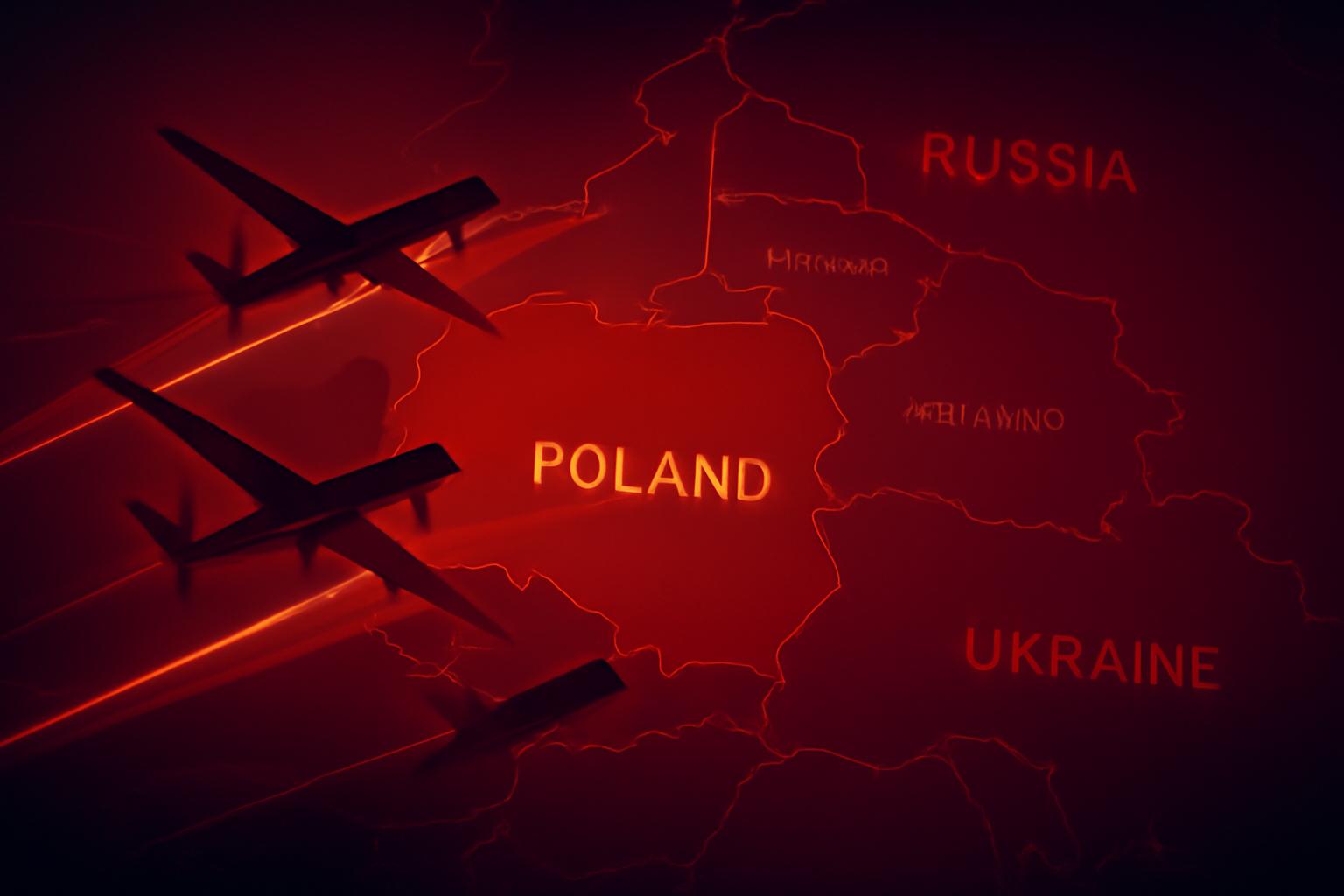Russia’s Incremental Provocations Escalate with Drone Attacks on Poland
In the early hours of September 10, 2025, Poland detected and scrambled both national and NATO aircraft to intercept 19 Russian drones that breached its airspace. This marked the first such violation since Russia launched its full-scale invasion of Ukraine in February 2022. Western officials swiftly condemned the incursion as a deliberate provocation, while Moscow denied any intention to attack Polish targets and dismissed the event as “nothing new.” The Kremlin has refrained from further comment.
Understanding Russia’s ‘Salami-Slicing’ Strategy
The drone attacks are widely interpreted as part of Russia’s broader geopolitical tactic known as “salami-slicing.” This strategy involves taking a series of small, incremental aggressive actions designed to advance strategic objectives without provoking a full-scale military response from adversaries.
Russian President Vladimir Putin has reportedly employed this approach repeatedly, including the 2014 invasion of Crimea, incursions into Estonian airspace, and the gradual expansion of influence in Georgia. Analysts see the recent violation of Polish airspace as a continuation of this pattern, intended to test NATO’s resolve and response capabilities.
NATO’s Response and Strategic Challenges
NATO Secretary General Mark Rutte acknowledged that an in-depth assessment of the drone incursion is ongoing and praised the alliance’s rapid response. In reaction to the incident, NATO has enhanced defensive measures along Europe’s eastern flank, discussed additional economic sanctions against Russia, and convened an emergency U.N. Security Council meeting.
Despite these steps, experts like Benjamin Godwin, partner at PRISM Strategic Intelligence, argue that NATO has struggled to effectively counter Russia’s incremental provocations. Godwin emphasized the alliance’s reluctance to engage directly with Russia has created an asymmetric advantage for Moscow to escalate tensions through unconventional means.
“Russia is able to escalate in these very, as we say in the U.K., salami-slicing ways, and NATO has proven incapable so far in responding in any effective way to stop these efforts,” Godwin told CNBC.
Broader Implications and Western Political Dynamics
Oksana Nechyporenko, a senior fellow at the Atlantic Council, warned that a muted Western response risks encouraging further provocations. She noted that Putin’s strategy explicitly targets Europe, using testing tactics to gauge and exploit weaknesses in Western unity and resolve.
Domestically, the incident has sparked political debate. U.S. President Donald Trump offered ambiguous remarks, suggesting the drone incursion “could have been a mistake,” while Polish Prime Minister Donald Tusk firmly rejected this characterization, stating, “We would also wish that the drone attack on Poland was a mistake. But it wasn’t. And we know it.” Such divergent views underscore the complexity of maintaining a unified Western front.
Trump has also previously advocated for harsher economic measures, including tariffs on countries purchasing Russian oil, aiming to cut off funding for Russia’s military operations.
Outlook
Russia’s use of salami-slicing tactics continues to complicate NATO’s strategic calculus, as incremental aggressions fall below thresholds that might trigger a decisive military response. The West’s ability to craft a calibrated yet robust reaction will be critical to deterring further provocations and maintaining regional stability.
FinOracleAI — Market View
The recent drone incursion into Polish airspace by Russian forces represents a significant escalation in Russia’s ongoing use of incremental provocations to test NATO and Western resolve. This tactic introduces heightened geopolitical risk, particularly in Eastern Europe, potentially increasing market volatility in defense sectors and energy markets.
Investors should monitor NATO’s forthcoming strategic responses and any expansion of sanctions against Russia, as these will heavily influence risk sentiment. The main risk lies in miscalculation leading to broader conflict escalation. However, until a decisive Western response emerges, the situation is likely to maintain a cautious, risk-off tone.
Impact: negative













